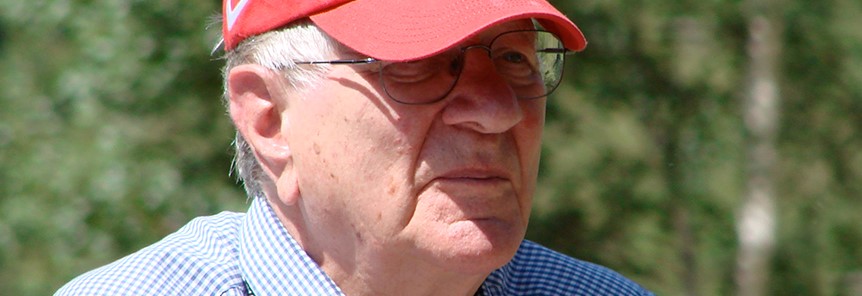BNA Annual General Meeting 2025
1st April 2025
6th Mar 2023

A symposium held in honour of Horace Barlow’s 101st birthday, held in the Department of Physiology, Development and Neuroscience, University of Cambridge last December 16th 2022, has been deemed a great success - despite the challenges of train strikes and snow across the UK.
Horace Barlow was the second ever president of what was then known as the Brain Research Association and is now the British Neuroscience Association (BNA). He guided the association through its early days, alongside others including Geof Einon, Sandra File, John O'Keefe, John Wolstencroft, Chris Evans and Pat Wall. Click here to read more about the history of the BNA.
Barlow was one of the great figures of modern neuroscience, well known for his path-breaking contributions to visual neurophysiology, psychophysics and brain theory. More than any of his contemporaries, Barlow’s work has a continuing influence on modern neuroscience. At the symposium, the organisers sought not to look back at Barlow’s career, but rather at current developments from his work.
There was an outstanding group of renowned and lucid speakers addressing this in the domains of perception, neurophysiology and theory. Meister’s opening keynote, Horace Barlow: a neuroscientist ahead of his time, discussed several of his most influential papers, delineating their impact on both Meister and the field. The next speakers – Fred Rieke, Denis Pelli, Anya Hurlbert and Concetta Morrone – explored modern concepts of visual psychophysics and neurophysiology in visual sensitivity and perception that have emerged from Barlow’s early work.
After lunch Eero Simoncelli, Stephanie Palmer, Doris Tsao and Michael Shadlen explored the ways in which Barlow’s foundational concept of efficient coding continues to drive contemporary theories and experiments in neuroscience, perception and decision-making. The meeting concluded with keynote addresses by Markus Meister and William Bialek, who offered unique perspectives on Barlow’s enduring influence.
Bialek’s closing keynote, Efficient representation, far from the source, explored the ways in which the efficient coding hypothesis has unexpectedly driven research in such diverse areas as embryonic development, gene structure, and the control of gene expression.
190 delegates registered and ~160 people were present throughout the day, including nearly 100 training scientists (postdoctoral and graduate student levels). 88% of delegates were UK-based and 12% from overseas. Virtual attendance was provided for those unable to travel because of the cold weather and train strikes.
Discussions were lively and broad-ranging, with a great deal of positive feedback from speakers and attendees:
The symposium was highly enjoyable with a diverse mix of speakers and perspectives. There was an insightful balance between high-level overview and reflection on Barlow's life and work, and domain-specific examples of speakers’ personal research which took inspiration from similar themes. Organisationally everything was fluid, and the programme allowed time for networking and scientific exchange.' - PhD student at the Technical University of Munich
‘Attendees were enthusiastic about the programme, and rich discussions were had over coffee during the break periods. As a volunteer and current PhD student it was a privilege to take part in an event so rich in history and collaboration.’ - PhD student at the University of Cambridge
William Bialek, Zoe Kourtzi, Tony Movshon, Daniel Wolpert
Miranda Barlow, Roger Keynes, Tony Movshon
Bill Bialek, Adrienne Fairhall, Anya Hurlbert, Markus Meister, Concetta Morrone, Stephanie Palmer, Denis Pelli, Fred Rieke, Mike Shadlen, Eero Simoncelli, and Doris Tsao.